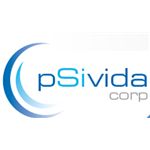 |
 |  |
| We've detected that you're using an ad content blocking browser plug-in or feature. Ads provide a critical source of revenue to the continued operation of Silicon Investor. We ask that you disable ad blocking while on Silicon Investor in the best interests of our community. If you are not using an ad blocker but are still receiving this message, make sure your browser's tracking protection is set to the 'standard' level. |

Copyright Business Wire 2009 SEVERE EDIT Two Newly-Published Scientific Papers Showed That the Steroid Used in Company's Iluvien Device Acted as Both a VEGF Inhibitor and NeuroprotectantpSivida PSDV | 6/15/2009 10:00:01 AM Potential Additional Eye Disease Treatment Applications for the Company's Iluvien Product BOSTON, Jun 15, 2009 (BUSINESS WIRE) -- pSivida Corp. (NASDAQ:PSDV)(ASX:PVA), a leading drug delivery company, today announced that two newly-published peer reviewed scientific papers showed that Fluocinolone acetonide (FA) both -- inhibited VEGF production -- and protected retinal cells and function. These findings support expanding the treatment indications for the company's lead product, Iluvien, a miniaturized, injectable, sustained-release drug delivery system that releases FA directly into the eye. Iluvien is licensed to Alimera Sciences, of Alpharetta, Georgia and is in Phase III clinical trials for the treatment of Diabetic Macular Edema. Initial data from the 950-patient trials are expected to be -- reported by the end of the year, -- with an NDA filing scheduled for early 2010. "These properties support expanding the use of Iluvien beyond DME to include conditions such as -- wet and dry AMD (age-related macular degeneration) for which Phase II trials are currently underway; -- other degenerative conditions such as retinitis pigmentosa. Dr. Ashton noted that no currently approved treatment for these conditions provide both VEGF inhibitive and neuroprotective qualities. The first study, "Fluocinolone inhibits VEGF expression via glucocorticoid receptor in human retinal pigment epithelial (ARPE-19) cells and TNF-alpha-induced angiogenesis in chick chorioallantoic membrane (CAM)" was published in the April issue of Journal of Ocular Pharmacology and Therapeutics. In the paper, Dr. Ashton, and colleagues Surya P. Ayalasomayajula and Uday B. Kompella, of the University of Nebraska Medical Center in Omaha, reported that they found that Fluocinolone inhibited VEGF expression in ARPE-19 cells via its glucorcorticoid receptor activity. In addition, flucinolone inhibited proliferation of ARPE-19 cells and TNF-a-induced angiogenesis in chorioallantoic membranes. "VEGF inhibition is one method of treating wet-AMD and is the mechanism of action for currently the most effective FDA-approved treatment for this disease," said Dr. Ashton. The second study, "Photoreceptor neuroprotection in RCS rats via low-dose intravitreal sustained-delivery of flucinolone acetonide" published on line in Investigative Ophthalmology & Visual Science, with print publication scheduled for August, studied the neuroprotective effects of FA delivered through a Medidur-device in RCS. Authors Dr. Ashton and Inna V. Glybina, Alexander Kennedy, Gary Abrams and Raymond Iezzi, of the Kresge Eye Institute in Detroit, found that chronic intravitreal infusion of FA preserves both the structure of the retina and retinal function. These findings suggest Iluvien may have a therapeutic role in human degenerative eye diseases including dry-AMD and retinitis pigmentosa. pSivida's lead development product, Iluvien(TM), delivers fluocinolone acetonide (FA) for the treatment of diabetic macular edema (DME). pSivida also has two products approved by (FDA): -- Retisert(R) for the treatment of uveitis and -- Vitrasert(R) for the treatment of AIDS-related cytomegalovirus (CMV) retinitis. pSivida has licensed both to Bausch & Lomb Incorporated. pSivida has a worldwide collaborative research and license agreement with Pfizer Inc. under which Pfizer may develop additional ophthalmic products. pSivida owns the rights to develop and commercialize a modified form of silicon known as BioSilicon(TM), which has potential therapeutic applications. The most advanced BioSilicon product candidate, BrachySil(TM), delivers a therapeutic P32, a radioactive form of phosphorus used to treat cancer, directly to solid tumors. pSivida has completed an initial safety clinical trial of BrachySil for the treatment of pancreatic cancer and is conducting a follow-on dose-ranging clinical trial. pSivida's intellectual property portfolio consists of 45 patent families, over 100 granted patents, including patents accepted for issuance, and over 200 patent applications. pSivida conducts its operations from Boston in the United States and Malvern in the United Kingdom. SOURCE: pSivida Corp. In US: Beverly Jedynak 312-943-1123 bjedynak@janispr.com or In Australia: Brian Leedman, Vice President, Investor Relations, pSivida Corp. +61 8 9227 8327 brianl@psivida.com Copyright Business Wire 2009 Diabetic Macular Edema: Update and Treatment Options David Callanan, MD; Dean Eliott, cme.medscape.com Misc nei.nih.gov content.karger.com The Prevalence of Diabetic Retinopathy Among Adults in the United States Conclusion Approximately 4.1 million US adults 40 years and older have diabetic retinopathy; 1 of every 12 persons with DM in this age group has advanced, vision-threatening retinopathy. archopht.ama-assn.org jhasio.com | ||||||||||||||
|
| Home | Hot | SubjectMarks | PeopleMarks | Keepers | Settings |
| Terms Of Use | Contact Us | Copyright/IP Policy | Privacy Policy | About Us | FAQ | Advertise on SI |
| © 2026 Knight Sac Media. Data provided by Twelve Data, Alpha Vantage, and CityFALCON News |


